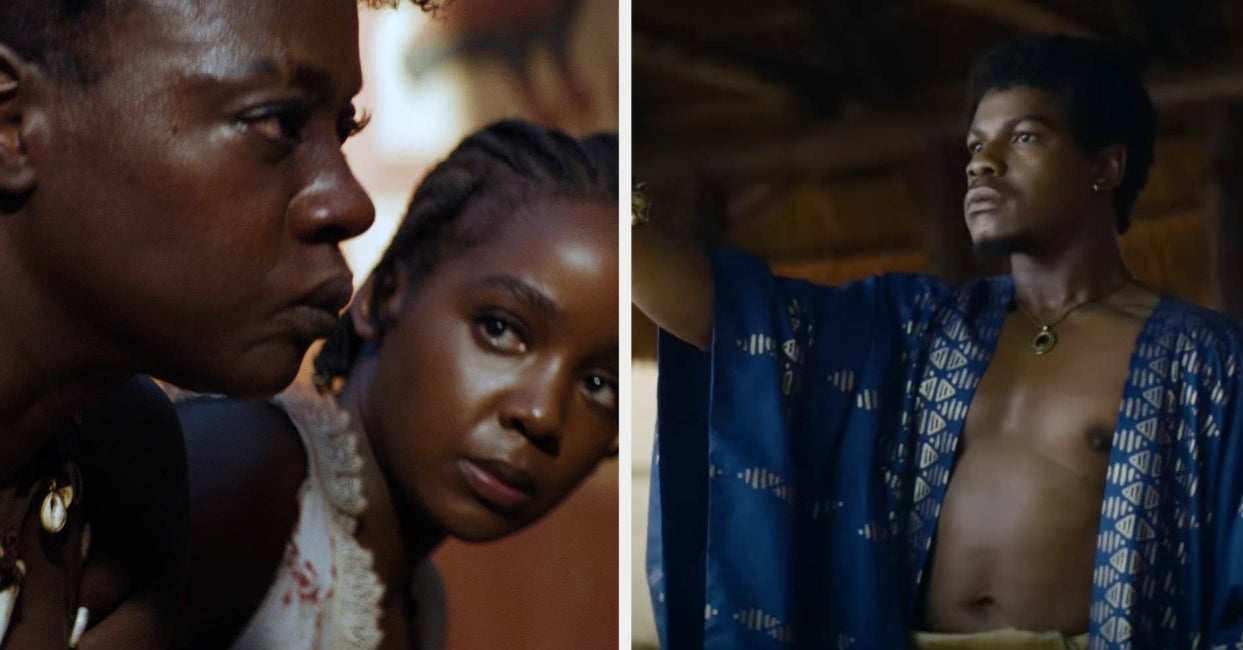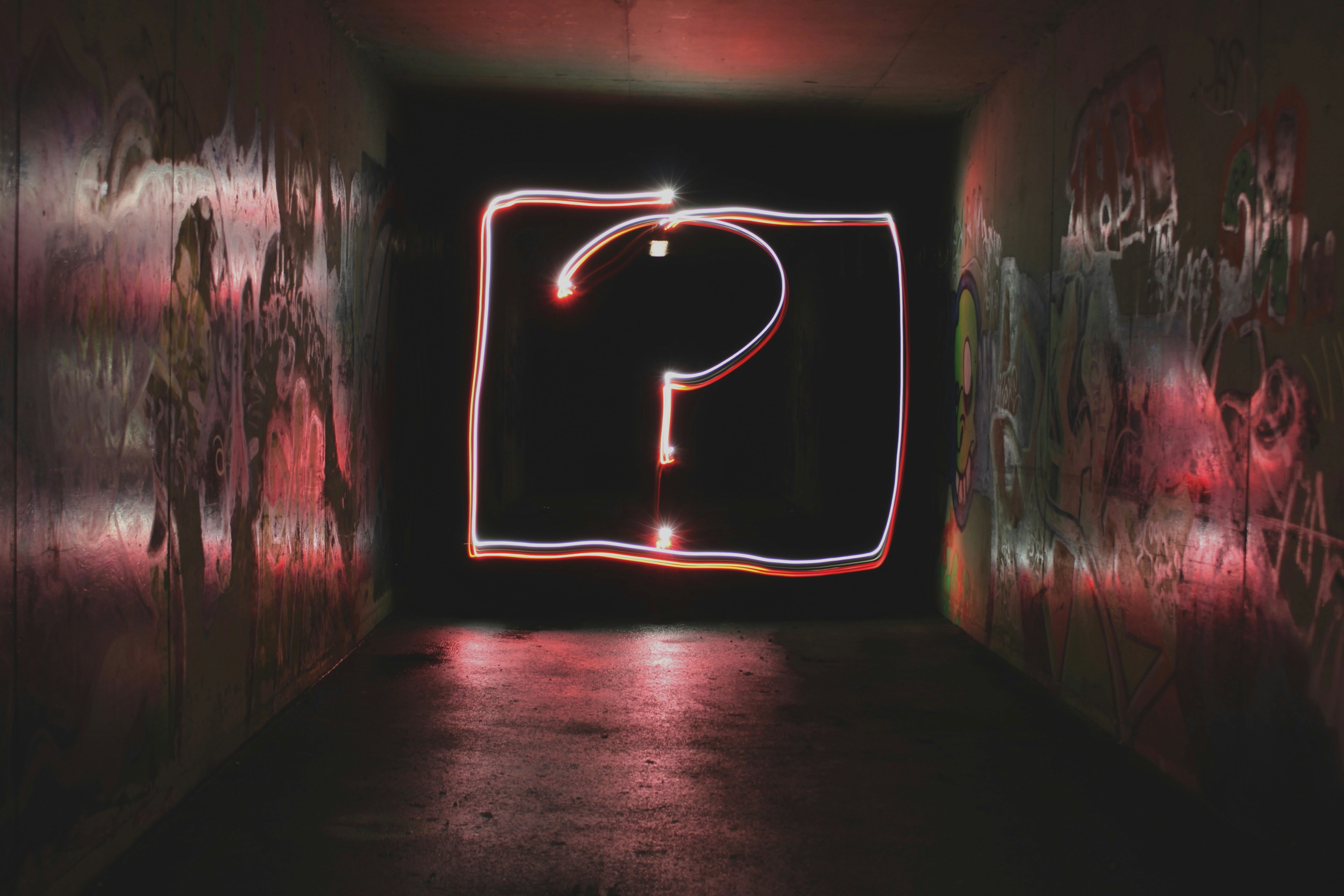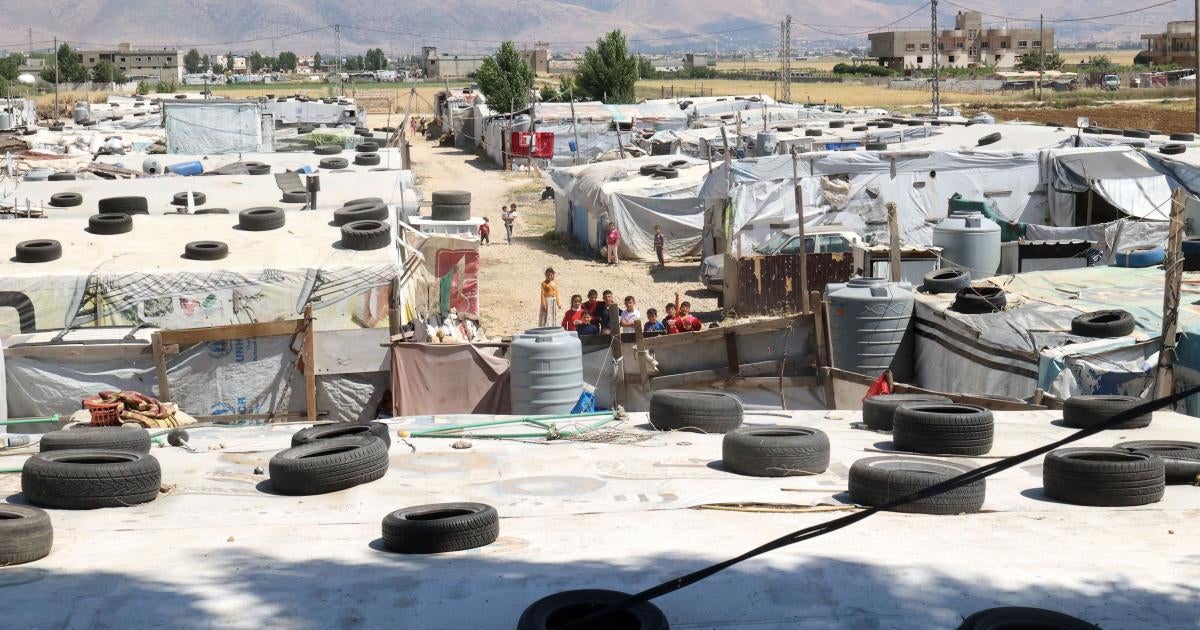
John Boyega And Thuso Mbedu Opened Up About Shooting “The Woman King” With Viola Davis
Last month, I attended a private screening of Viola Davis’s newest movie, The Woman King, directed by Gina Prince-Bythewood (The Old Guard, Love & Basketball). If you’ve seen the epic trailer, you know this film is centered on a badass, all-female group of warriors. However, what you likely don’t know is that The Woman King is inspired by real-life events.
 TriStar Pictures / Courtesy Everett Collection
TriStar Pictures / Courtesy Everett CollectionEarlier this week, I had the pleasure of speaking with two of the film’s stars: John Boyega, who plays King Ghezo, and Thuso, who plays a warrior named Nawi. They shared what they learned from working alongside Viola, how the cast bonded on set, and what they hope this film will do for little Black and brown girls around the world. Read our interview ahead.
 Brooke Greenberg / Getty Images
Brooke Greenberg / Getty ImagesEditor’s note: This interview has been edited for length and clarity.
1. Hi, John and Thuso! I’m so excited to chat with you two about this film. To start, I’d love to know what was your first impression of each other when you met?
 Matt Winkelmeyer / Getty Images
Matt Winkelmeyer / Getty ImagesJohn Boyega: I had seen Thuso in The Underground Railroad not too long before I came down to set. I’m very familiar with her work. We first met during a night shoot, and I was just thinking about Thuso’s size. Like, Wow, I could fit her in my pocket. [laughs]
Thuso Mbedu: That’s hilarious! It was a night shoot, which means I was cold and miserable. I remember Adrienne [Warren], Masali [Baduza], and myself, we were singing this random song we’d come up with, and then John popped up. It was an embarrassing moment. I was like, “Oh, snap. It’s John! This is not how we do things on the set; we’re supposed to be professional.” [laughs] But he had this big smile on his face and he looked like he was excited to come to join us, so it was a good first impression.
2. What was the most surprising thing you two learned about the Agojie warriors (aka the Dahomey Amazons) while preparing for this project?
 TriStar Pictures / Courtesy Everett Collection
TriStar Pictures / Courtesy Everett CollectionJB: For me, it was their training process. I didn’t know [the Agojie] were supposed to totally ignore pain, which, I think, psychologically is pretty crazy. I would compare their strict lifestyle to the discipline nuns have to have. The Agojie had to stay homely in that sense, but at the same time, they were exposed to such violence. Psychologically, the training they went through is quite unheard of in any other military.
TM: Everything was surprising for me because it was my first time learning about the Agojie warriors. Everything was new to me. As John said, it was the training more than anything. I learned that the women had to go through obstacle courses where they were running through thorns, pelted with rocks, jumping across really high spaces, and at the same time were not allowed to show weakness.
When we were shooting with [the director], Gina, part of our conversation was, “How do we show that our characters are in pain, but they’re not allowed to show that?” We had ADR sessions where Gina said, “Okay, we need you to scream a bit louder.” And I’m like, “But the note on set was the Agojie was not supposed to show pain.” Their entire world was a shock for me. I’d say my takeaway was their strength and their conviction of what it is that they were fighting for.
[Editor’s note: ADR is an acronym for automated dialogue replacement, a process in filmmaking where actors rerecord dialogue in postproduction.]
3. What was the best lesson you both learned from watching Viola Davis on set?
 TriStar Pictures / Courtesy Everett Collection
TriStar Pictures / Courtesy Everett CollectionJB: At this stage — with all that she’s achieved — she still puts in 110% on set. The first day I started filming, she was bleeding from her leg and her toes. I looked down and said, “You need to get that sorted.” But that was a secondary thought for her. She had determination. You’d think that you’d have to be young to have it. As you get older, it’s easy to get complacent and lazy. Especially as someone at her stage, she didn’t need to be doing all the stunts and participating in all of the training, but that showed me she still has a level of dedication to the craft.
TM: There was a dramatic scene Viola and I filmed earlier on where [General Nanisca and Nawi] had just come out of the water. Nawi says, “If I hadn’t come back for you, you would’ve died.” Viola (as Nanisca) says, “Oh, so you’re playing the hero.” After we shot that, she stopped and said, “I don’t believe what I’m doing.” That was important because it showed that she was always aware of what she was doing at all times.
I always have full confidence in my acting ability because of the preparation that I do beforehand. But without it, I’d argue that 75% of my performance is still good enough to pass onscreen. At that moment, Viola essentially said, “My 75% might be good enough to pass, but it’s not the final product. I will stop and make sure that I’m giving 100%.”
4. Is there a line or moment in the film that was completely improvised?
 TriStar Pictures / Courtesy Everett Collection
TriStar Pictures / Courtesy Everett CollectionTM: We had a few, but the one that stands out the most is the scene where Nanisca tells Nawi, “You must kill your tears” after Nawi tells her that she has not had an easy life. Nanisca takes away her machete. That wasn’t in the script, but Viola thought, Something feels off. She felt we weren’t doing the scene justice as it was. So we found a way that we felt worked, and I’ve gotten a lot of positive feedback regarding that scene between them.
Also, I requested a fix in the scene later that night where Nawi is practicing on the dummy because I was like, Hmm, it wouldn’t make sense that she would be rehearsing on a dummy with a machete that had been taken from her earlier.”
5. How did the cast bond on set? Is there a behind-the-scenes bonding experience you’ll never forget?


TriStar Pictures / Courtesy Everett Collection, / ©TriStar Pictures / Courtesy Everett Collection
TM: We always joke about the fact that our training became our trauma bonding, honestly. We still say we have PTSD. That and we bonded over the very bland types of foods that we had to eat over and over again. I remember when Sheila [Atim], Lashana, and I were at the Essence Festival after wrapping the movie and they served us fish and all of us were like, “No!” [laughs]
What’s funny is, most of us on that set are introverts, so we understood each other. We got each other without having to say much. We bonded during training for battle scenes because of our matching personalities, and just being with each other almost all the time. I think the connection happened organically. As an introvert myself, whenever I feel comfortable around people is when they get to know who I am. Viola is also an introvert, but sometimes randomly when they called cut, she’d start dancing, and then we’d join. We were an introverted group of people celebrating what it is that we were doing.
6. Thuso, your bond with Lashana is so palpable onscreen. What was it like working so closely with her, especially filming that gut-wrenching scene that happens during a pivotal moment of the film?
 TriStar Pictures / Courtesy Everett Collection
TriStar Pictures / Courtesy Everett CollectionTM: It was great because Lashana is someone that I could bounce ideas off of. We had a relationship that made us feel safe enough to take risks and try things out. There was a mutual understanding of supporting each other. If I’m not mistaken, Gina said it was a take that I did where my character is speaking of Lashana’s character, Izogie, that made her go back and switch some of the script to have Izogie and Nawi get closer throughout the movie. Their relationship could have been completely different had that moment not occurred earlier on. Lashana and I were constantly working to earn the chemistry that you see onscreen so that when [that pivotal scene] happens, it’s like, ‘WTF?’ We had to earn that.
7. Before the film’s release, I saw some critics questioning whether The Woman King would address the Kingdom of Dahomey’s involvement in the Atlantic slave trade under King Ghezo’s leadership. Having seen the film, I can say that it does tackle the elephant in the room, so to speak. John, what was your reaction to reading this historical context in the script?
 TriStar Pictures / Courtesy Everett Collection
TriStar Pictures / Courtesy Everett CollectionJB: I think this film has a very nuanced take on that time in history. It’s a movie about self-reflection, it’s a movie about trauma, and it’s a movie about pain. As creators, we are here to shine a light on the realities of the world. We’re not necessarily always here to preach a very accepting message. Art can live in a moral or immoral space and could sometimes just be about shining a light on human nature, history, and the reality of that conflict. So, for me, [Gina and Dana Stevens] including that just shows that there is a way in which we can embrace stories that accept the fact that humanity is not perfect, while also being entertaining and something you can learn from.
[Editor’s note: Dana Stevens wrote the screenplay for The Woman King.]
8. Did either of you take anything from the set? Any props or costumes you got to keep as memorabilia?


TriStar Pictures / Courtesy Everett Collection, / ©TriStar Pictures / Courtesy Everett Collection
TM: They gave me my machetes — like, the real heavy one! I have it in my apartment. They gave us a bracelet with a cowrie shell because the cowrie shell was so important to the Agojie women. They wore it on their uniform and it conveyed rank. They gifted it to us.
JB: I didn’t get anything, but I definitely wanted some stuff. Maybe I’ll ask for something now. [laughs]
9. Who is the woman king in your lives? Is there a woman who represents the same level of fearlessness and heart that General Nanisca has in the film?
 Michelle Quance / Variety via Getty Images
Michelle Quance / Variety via Getty ImagesTM: My older sister. She has been my fighter. We’ve been in the trenches together. She’s all I have in this world, literally, in every sense of the word. And she’s my champion, through and through.
JB: My mom [is my woman king]. Lord, where do I even start? I mean, she’s everything. Her support, her knowledge, and the fact that we have a great friendship.
10. I love that! OK, last question: What does it mean to be a part of a movie featuring brown-skinned women in combat, and what do you hope this film will do for little brown girls across the world who see themselves in it?
 TriStar Pictures / Courtesy Everett Collection
TriStar Pictures / Courtesy Everett CollectionJB: It inspired me in so many ways. My number one goal is to create more opportunities for brown-skin girls. I feel like this is now an opportunity for production companies to be inspired. Hopefully, we make some money and the movie gets enough traction so that producers are inspired to purchase, develop, and green-light more stories like this. Also, hopefully, it inspires Hollywood to fund more projects that bring the diaspora together. We’re all big fans of each other, and we build great characters and great chemistry on set. Especially when there are actors from South Africa and Nigeria, the UK, and America. We all love to collaborate. This movie is really for the diaspora and people from different African backgrounds. Hopefully, that continues to be a thing.
TM: I know how proud my niece will be to see me onscreen. And I know that being in a movie like this means she can experience the world in a completely different way from how I had to experience the world growing up just because I was darker.
I have a light-skin sister, so I’m speaking from experience. She was the favored one. She was the one that people gravitated toward. She was the one who was told she was beautiful and that she was likable. I hadn’t done or made anything to earn the title of being the opposite of who she is; I was just existing as a dark-skin girl. My niece is also dark-skinned, and she’s always been told that she looks like me. For her to see something like The Woman King will expand who she can become, and that makes me very excited.


































































